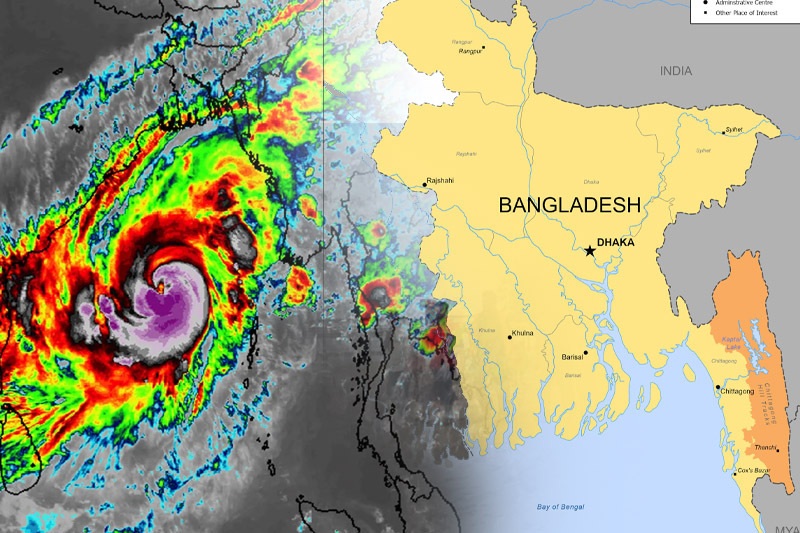
Major evacuations underway as Cyclone Mocha threatens Bangladesh
As Cyclone Mocha is expected to make landfall on Sunday, with 170 kmph winds and storm surges of up to 12 feet, around half a million people are being evacuated to safer areas in southeast Bangladesh.
The cyclone is predicted to be extremely dangerous and could be the most powerful storm the country has seen in nearly 20 years. Red warning flags have been raised and some parts of Bangladesh have already started receiving precipitation.
As Cyclone Mocha heads toward the Bangladesh-Myanmar coast, nearby airports have been asked to pause operations, fishermen have been advised to stop venturing into the sea, and 1,500 shelters have been set up for vulnerable families.
There are concerns the dangerous weather system could impact the largest refugee camp in the world, Cox’s Bazar, where almost a million people live in makeshift houses.
Officials in the city said 1,000 people had already been transported from one area, adding there are plans to evacuate another 8,000 people from a ward near the beach if the situation exacerbates.
Keep Reading
Close to a million Rohingya refugees who have escaped violence in neighbouring Myanmar are at risk. The people are living in bamboo shelters with tarpaulin covers. The United Nations says it is doing what is possible at the moment to protect these areas.
The government of Bangladesh doesn’t allow refugees to leave their camps. Many people have, therefore, raised concerns over what will happen if their camps are hit by the storm.
According to forecasters, the cyclone could bring along torrential downpours, which can trigger landslides – a serious danger for those living in hillside camps, where landslides aren’t uncommon.
According to BBC, MD Shamsul Douza, from the Bangladeshi government office which oversees the refugees and the camps, said moving people out of the camps wasn’t an easy task, adding they were working with NGOs to prepare the shelters for the cyclone.
Meanwhile, in Myanmar, precipitation started on Friday night in the capital of Rakhine State, Sittwe City. The streets swiftly got empty as people started taking shelter, with many trying to find accommodation in cyclone shelters on high ground.




